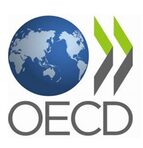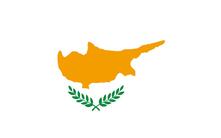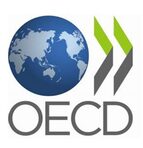|
Taiwan's Ministry of Finance has released a Decree regarding principles of tax collection authorities concluding cross-border bilateral or multilateral advance pricing arrangements under the Mutual Agreement Procedures of the applicable Income Tax Agreements.
The Ministry of Finance explained that, all of its 33 effective income tax agreements include an Article of "Mutual Agreement Procedures"(hereinafter referred to as "MAP"). Multinational enterprise (MNE) groups apply for BAPAs based on the MAP provisions in order to avoid double taxation arising from the transfer pricing adjustments made respectively by the tax collection authorities of the contracting parties on the income of the controlled transactions. The Ministry of Finance further explained that, considering different countries with their own domestic transfer pricing laws and regulations to adjust the results of the controlled transactions not within the arm's length range differently, and different industries bearing different levels of risk towards business cycles or operation cycles, the Ministry of Finance released this Decree to grant the tax collection authorities flexibility to negotiate with the competent authorities of the treaty partners. See Decree On June 23, 2021, the exchange of diplomatic notes between the Government of Japan and the Government of Uruguay for the entry into force of a tax treaty between both countries took place.
The tax treaty, accordingly, will enter into force on July 23, 2021. The tax treaty will generally have effect from January 1, 2022. See Announcement On June 22, 2021, OECD published international exchange framework and optional module for Model Reporting Rules for Digital Platforms.
The Model Rules for Reporting by Platform Operators with respect to Sellers in the Sharing and Gig Economy were developed in light of the rapid growth of the digital economy and in response to calls for a global reporting framework in respect of activities being facilitated by such platforms, in particular in the sharing and gig economy. Activities facilitated by platforms may not always be visible to tax authorities or self-reported by taxpayers. At the same time, the platform economy also permits increased access to information by tax administrations, as it brings activities previously carried out in the informal cash economy onto digital platforms. See Model Reporting Rules On June 5, 2021, the Group of Seven (G7) Finance Ministers agreed to back an historic international agreement on global tax reform, which would ensure that large multinational enterprises (MNEs) pay their fair share of tax.
The G7 agreed the principles of an ambitious two Pillar global solution to tackle the tax challenges arising from an increasingly globalized and digital global economy. Under Pillar One, the largest and most profitable multinationals will be required to pay tax in the countries where they operate – and not just where they have their headquarters. The rules would apply to global firms with at least a 10 percent profit margin – and would see 20 percent of any profit above the 10 percent margin reallocated and then subjected to tax in the countries they operate. Under Pillar Two, the G7 also agreed to the principle of at least 15 percent global minimum corporation tax operated on a country-by-country basis, creating a more level playing field for UK firms and cracking down on tax avoidance. Chancellor Rishi Sunak said: “These seismic tax reforms are something the UK has been pushing for and a huge prize for the British taxpayer – creating a fairer tax system fit for the 21st century. This is a truly historic agreement and I’m proud the G7 has shown collective leadership at this crucial time in our global economic recovery.” Cyprus Tax Department will not impose penalty for overdue submission of DAC6 information that will be submitted until the September 30, 2021.
The penalty relief applies to:
On June 2, 2021, US Senate Finance Committee launched an investigation into AbbVie’s international tax practices.
The investigation seeks to underscore how the 2017 Republican Tax Law has allowed the company to avoid paying taxes on US prescription drug sales. Committee Chair Ron Wyden, D-Ore. has sought information on the methods employed by AbbVie by June 16, 2021. The US Trade Representative (USTR) has suspended tariffs on goods from six trading partners that were to be imposed in retaliation to discriminatory digital services tax introduced by these countries.
While the final determination in those digital services tax investigations is to impose additional tariffs on certain goods from these countries, the said tariffs have been suspended for up to 180 days to provide additional time to complete the ongoing multilateral negotiations on international tax at the OECD and in the G-20 process. Ambassador Katherine Tai said: “The United States is focused on finding a multilateral solution to a range of key issues related to international tax, including our concerns with digital services tax. The United States remains committed to reaching a consensus on international tax issues through the OECD and G-20 processes. Today’s actions provide time for those negotiations to continue to make progress while maintaining the option of imposing tariffs under Section 301 if warranted in the future.” The OECD has published comments received from stakeholders on the proposed tax changes to the commentaries on Article 9 of the OECD Model Tax Convention.
In March 2021, the OECD invited public comments on a discussion draft on the proposed changes. The changes put forward in the discussion draft are expected to be included in the next update to the OECD Model Tax Convention. Working Party 1 will consider these comments as it finalizes its work in this area with the expectation that revised commentaries will be included in the next update of the OECD Model Convention. See Comments |
Archives
March 2024
|
COMTAX ABC/o Ekonomiforetaget Baehring Dahl AB
Berga Alle 3 25452 Helsingborg Sweden |
CONTACTTel.: +46 46 590 07 70
E-mail: support(@)comtaxit.com |
INFORMATION |
© COPYRIGHT 1985 - 2024 COMTAX AB. ALL RIGHTS RESERVED.







